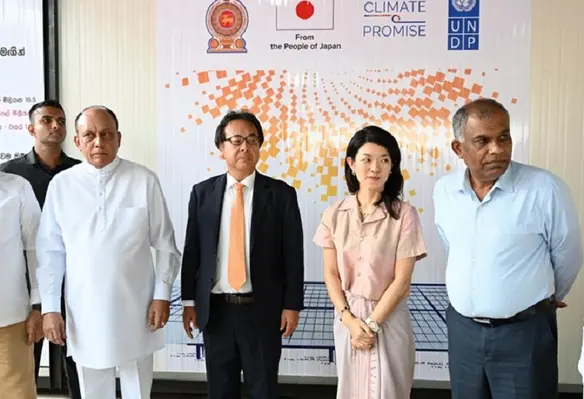The Climate Promise project, funded by the Japan Supplementary Budget (JSB), marked the ceremonial handing over of renewable energy technologies to farmer organisations in the northwestern province of Sri Lanka on 15 February
The JSB Climate Promise project in Sri Lanka is a collaborative effort aimed at introducing modern, green technologies to address the immediate challenges faced by smallholder farmers.
The key highlights of the official handing-over event included the transfer of solar-powered cool rooms, milk can coolers, solar PV systems for milk chilling centres and farmer training centres, backpack sprayers, large & small-scale solar-powered water pumps, and moth-repellent kits to 49 farmer organisations benefitting around 20,000 farmers. These cutting-edge technologies aim to revolutionise farming practices, ensuring sustainability and promoting eco-friendly alternatives. The provision of solar-powered equipment is specifically designed to empower smallholder farmers, with a focus on women and youth, enabling them to secure a sustainable income.
As part of the ceremony, a five-tonne solar-powered cool room was inaugurated, emphasising the commitment to enhancing food and energy security in the region. The facility will serve as a vital resource for farmers to store and preserve their produce efficiently. The event also featured an insightful inspection of the cool room’s operations, accompanied by interactive informal chats and discussions with the farmers.
Recognising the Government of Japan’s commitment to bolstering such initiatives in Sri Lanka, Ambassador of Japan to Sri Lanka, Mizukoshi Hideaki stated, “I believe that this support will help farmers deepen their understanding of the importance of sustainable agriculture in consideration of the global environment, and will also provide an opportunity for them to put green farming into practice, which is an important milestone in the promotion of renewable energy utilisation in the agricultural sector in Sri Lanka.”




